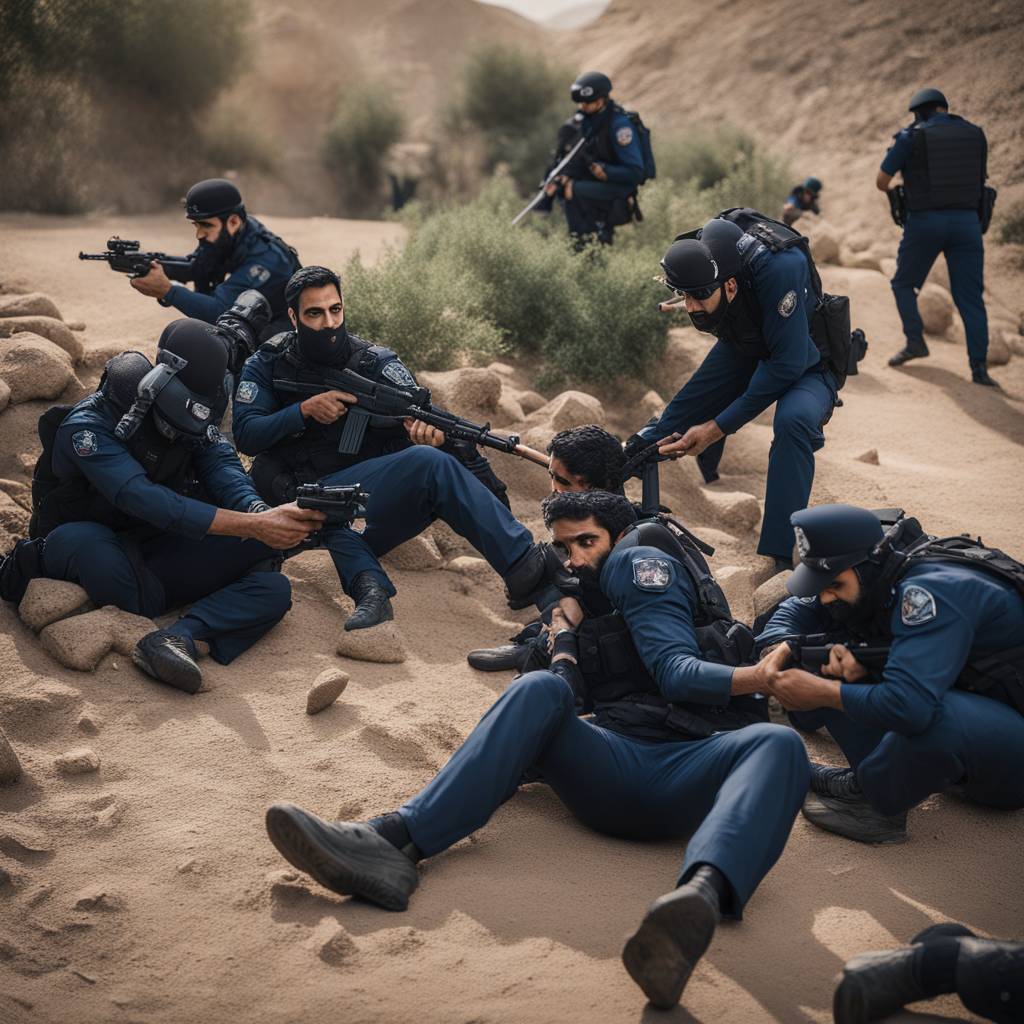Several media reports indicated that a police convoy in southeast Iran was ambushed by gunmen, resulting in the deaths of six policemen and injuring two others. The attack took place on a road in Sistan and Baluchistan province and was reportedly carried out by the Jaish al-Adl militant group, which has claimed responsibility for the attack. This incident, along with last week’s clashes that resulted in the deaths of 10 Iranian troops, 18 militants, and six additional members of the security forces, highlights a deteriorating security situation in the region. The province has been the site of deadly clashes involving militants, armed drug smugglers, and Iranian security forces, with tensions exacerbated by the strained relationship between the predominantly Sunni Muslim residents and Iran’s Shiite theocracy.
Iran’s Foreign Minister has accused the United States of giving Israel the “green light” to attack their consulate in Syria. The Minister’s allegations, however, have not been independently verified. The attack on the Iranian consulate in Syria adds to the escalating tensions in the region, with Iran and some other nations considering Jaish al-Adl a terrorist group. The group has been fighting for greater rights for the ethnic Baluch minority in Iran, highlighting the complex interplay of ethnic and religious dynamics in the region. The attack on the police convoy, coupled with ongoing clashes in the province, underscores the challenges faced by Iranian security forces in maintaining order in Sistan and Baluchistan.
The recent spate of attacks in Sistan and Baluchistan is indicative of the broader security challenges faced by Iran, particularly in regions bordering Afghanistan and Pakistan. The province’s proximity to these countries has made it a hotspot for militant activity, armed drug smuggling, and clashes with Iranian security forces. In December, nearly a dozen police officers were killed in an attack on a police station in the province, further underscoring the volatility of the region. The strained relations between the Sunni Muslim residents of Sistan and Baluchistan and Iran’s Shiite government have also contributed to the long-standing tensions and violence in the area, making it a flashpoint for conflict.
The attacks in Sistan and Baluchistan have drawn attention to the issue of minority rights in Iran, with the Jaish al-Adl group advocating for greater autonomy and rights for the Baluch minority. The region’s underdevelopment and economic marginalization have further fueled grievances among the local population, exacerbating existing tensions with the Iranian government. The complex interplay of ethnic, religious, and socio-economic factors in Sistan and Baluchistan underscores the challenges faced by Iranian authorities in addressing the root causes of the conflict and maintaining stability in the region. The clashes between militants, armed smugglers, and security forces have resulted in a cycle of violence that has claimed the lives of both civilians and security personnel, perpetuating a cycle of instability in the province.
The Iranian government’s response to the attacks in Sistan and Baluchistan will be closely watched as it seeks to address the security challenges in the region and prevent further violence. The deteriorating security situation in the province, highlighted by the recent attacks on security forces, underscores the need for effective strategies to address the root causes of the conflict and promote reconciliation among the various ethnic and religious groups in the region. The Iranian government’s efforts to improve economic development and address grievances among the minority populations will be crucial in addressing the underlying causes of militancy and violence in Sistan and Baluchistan. International support and cooperation will also be essential in helping Iran address the security challenges in the region and prevent further escalation of violence.


